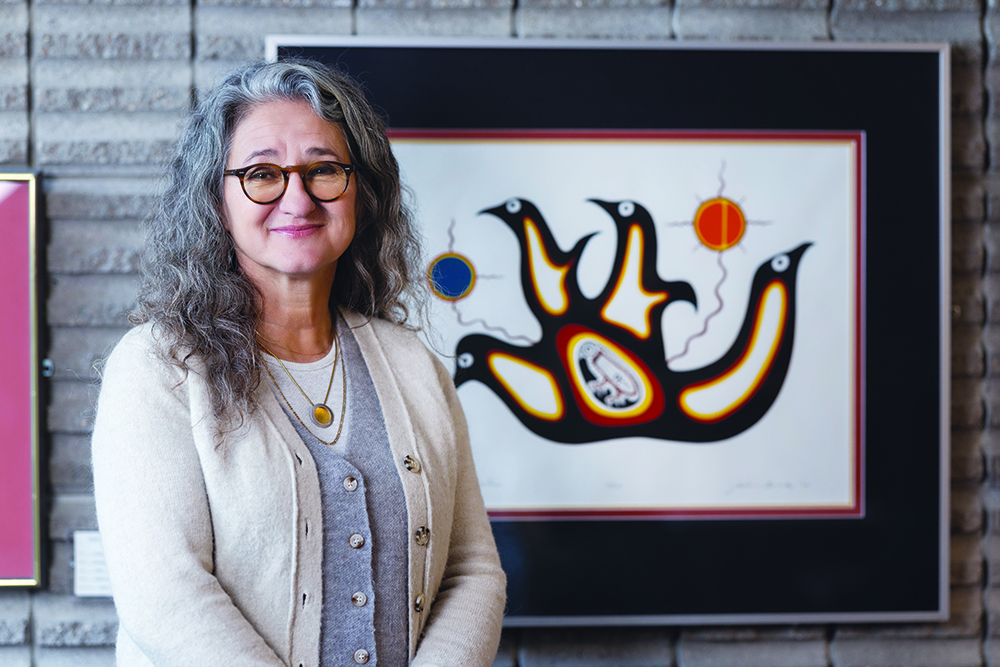
Thirty years ago, when Moni Fricke [BMRPT/87, M.Sc./98, PhD/16] took a position as a physiotherapist in northern Manitoba, it was a decision that greatly influenced her life and career.
Flying north regularly to the Island Lake area, she worked for the First Nations therapy program run by Winnipeg-based Community Therapy Services.
“I had been thinking about moving overseas, but then this job became available,” Fricke says. “I thought I could stay in Manitoba and still get the experience of working in global health that I was looking for.”
She credits her worldview to her parents, who moved to Canada from Western Europe in the 1950s. “Our conversations at the dinner table were often around politics and inequities around the world,” she remembers.
Providing care in remote First Nations reinforced what Fricke had already witnessed in Winnipeg’s core area: many Manitobans had inequitable access to physiotherapy services. She decided to pursue her master’s in community health sciences while based in the north, focusing her thesis on access to rehabilitation services in First Nations communities.
The north was also where she met her husband, Dr. Bruce Martin [M.Sc./03], who was in the master’s program at the same time. “He continues to work with people who are systematically overlooked in health care, and that motivates me to keep going,” she says.
Fricke’s interest in northern access to rehabilitation continued. She has had several publications about services in the Kivalliq Region of Nunavut in the International Journal of Circumpolar Health.
She joined the College of Rehabilitation Sciences in 1999 as a part-time instructor. In 2019, she became a full-time faculty member in the dual roles of assistant professor and director of the Rady Faculty Office of Interprofessional Collaboration.
Interprofessional learning has been one of her key research areas, and she has published several studies in the Journal of Interprofessional Care. Another topic she has investigated is access to interprofessional health services for refugees and newcomers to Canada.
Fricke’s advocacy for equitable care has compelled her to study effective ways to train future health professionals to dismantle racism. There’s been much research on racism between health-care providers and patients, she says, but little on such behaviour among members of health-care teams.
In 2020-21, with a national group of physiotherapists and Debra Beach Ducharme [B.Ed/85, M.Ed/09], director of Indigenous health integration at Ongomiizwin – Education, Fricke created and delivered an online workshop to address racism in the workplace.
It uses role-playing scenarios to help rehabilitation therapists practise how to respond when a colleague makes an Indigenous-specific racist remark or slights an Indigenous person. Results of evaluating this workshop were published in Frontiers in Rehabilitation Sciences in 2023.
Recently, Fricke heard from a clinical site in Winnipeg where UM rehabilitation students had done clinical placements. A student had spoken up when a patient made an inappropriate comment related to race.
“The supervisor was impressed that this student knew what to say. We were told that, more often than not, racialized preceptors [professionals who supervise learners] need to step in during these kinds of conversations.
“I’m proud to say that our student knew how to use their knowledge and skill and make a difference in the real world.”
BY ALAN MACKENZIE
